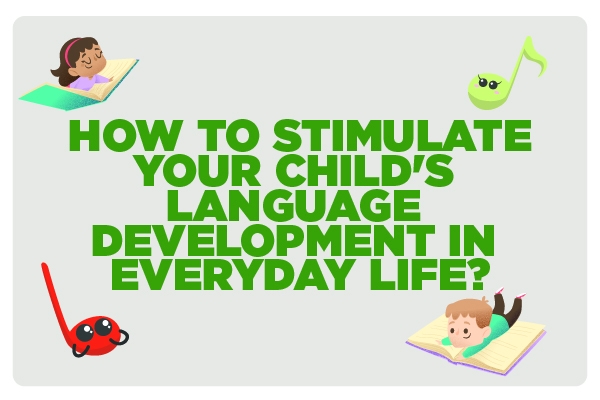
How to Stimulate Your Child's Language Development in Everyday Life?
Language development begins from the very first months of life and gradually builds through interactions with the surrounding environment. Here are some simple tips to encourage your child to express themselves:
- Talk to them from birth
Even if your baby cannot speak yet, it is essential to talk to them regularly. Describe your actions, name the objects around them, and use a warm tone to capture their attention. - Read books together
Books are excellent tools for enriching vocabulary and structuring language. Choose age-appropriate books with colorful images and simple texts. - Ask open-ended questions
Favor questions that encourage thinking and expression, such as: "What did you do at school today?" or "What is your favorite color? Why?" - Sing nursery rhymes and play with sounds
Songs and rhymes help develop auditory memory, pronunciation, and the rhythm of language. - Correct without frustration
If your child makes a mistake, rephrase the sentence correctly without insisting on the error. For example, if they say, "Me want cake," respond with, "Oh, you want a cake!"
كيف تحفّز لغة طفلك في الحياة اليومية؟
يبدأ تطوّر اللغة منذ الأشهر الأولى من الحياة ويتطور تدريجيًا من خلال التفاعلات مع المحيط. إليك بعض النصائح العملية لتحفيز لغة طفلك:
التحدث معه منذ الولادة-
حتى وإن لم يكن طفلك يتكلم بعد، من الضروري التحدث إليه بشكل مستمر. قومي بوصف أنشطتك، وسمِّي الأشياء المحيطة به، واستخدمي نغمة دافئة لجذب انتباهه وتعزيز تواصله معك.
قراءة الكتب معًا-
تعتبر الكتب من الأدوات الفعّالة لإغناء مفردات الطفل وتنمية مهاراته اللغوية. اختاري كتبًا مناسبة لعمره تحتوي على صور جذابة ونصوص بسيطة تدعمه في تطوير مهاراته اللغوية.
طرح أسئلة مفتوحة-
من المفيد طرح أسئلة تشجع الطفل على التفكير والتعبير، مثل: "ماذا فعلت اليوم في المدرسة؟" أو "ما هو لونك المفضل؟ ولماذا؟"
الغناء والتفاعل مع الأصوات-
الأناشيد والأغاني تساهم في تطوير الذاكرة السمعية، والنطق، والإيقاع اللغوي لدى الطفل. اللعب بالأصوات يحفّز أيضًا قدرة الطفل على التعبير.
تصحيح الأخطاء بلطف-
في حالة وقوع الطفل في خطأ لغوي، من الأفضل إعادة صياغة الجملة بشكل صحيح دون التركيز على الخطأ. على سبيل المثال، إذا قال "أنا أريد كاتو"، يمكن الرد قائلاً: "أنت تريد كاتو!"، مما يساعده على التعلم دون إحساس بالضغط.




